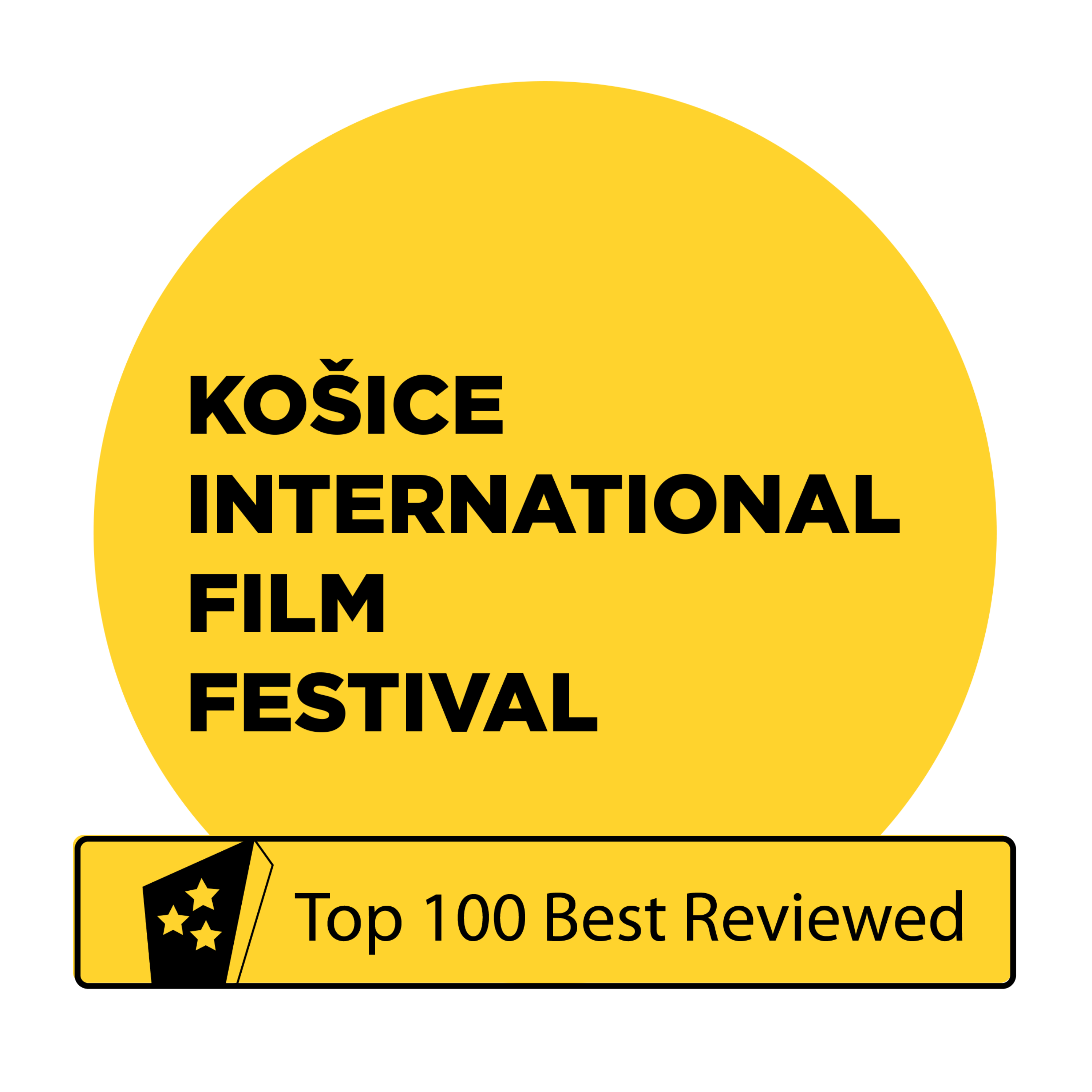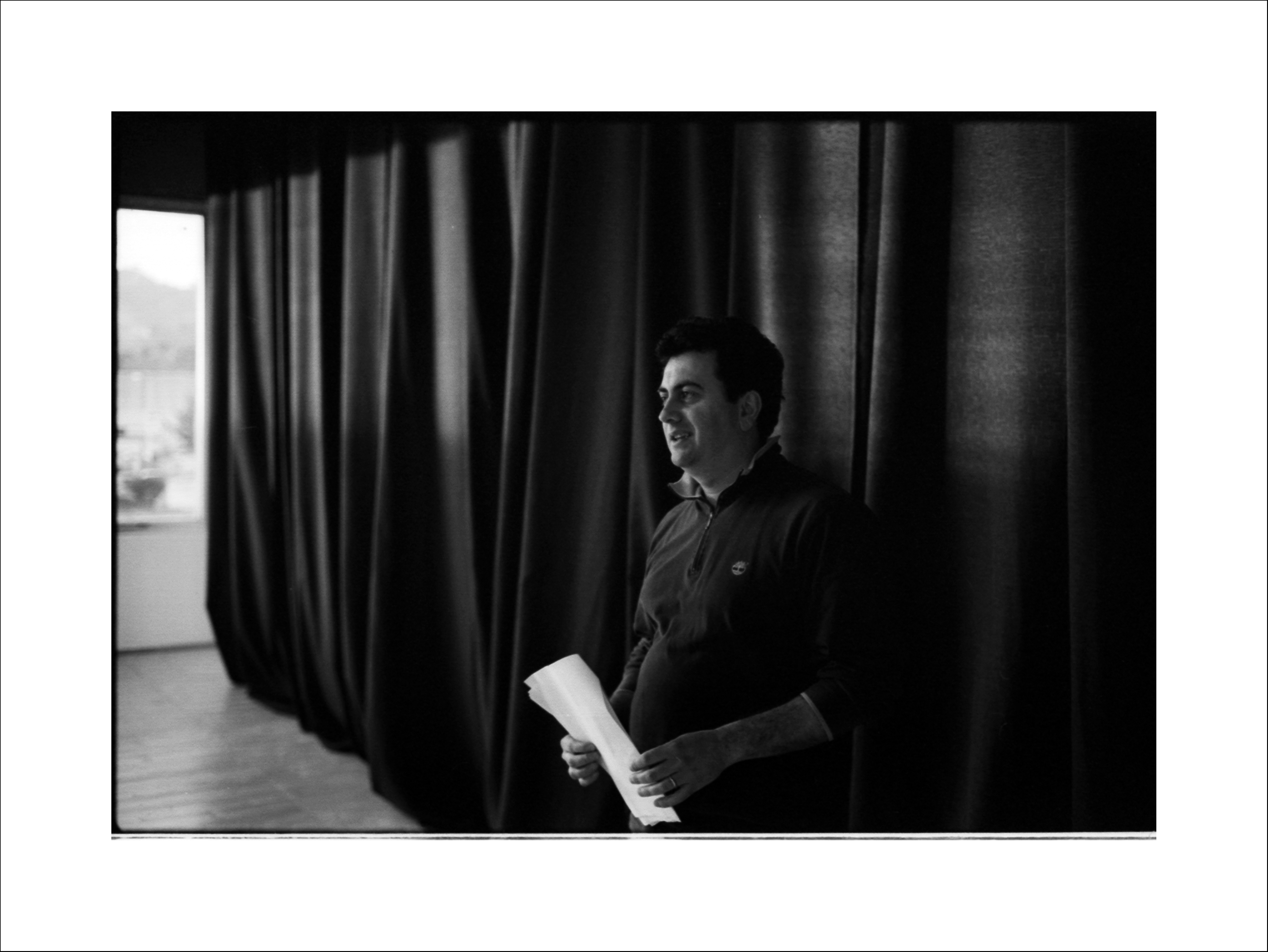Pierpaolo Poggi
screenwriter of "Cringe"
Pierpaolo Poggi, professional television and theater writer, director of national shows (present at the Versiliana Festival for years), has collaborated in the creation of over 20 video clips with the major Italian and foreign artists (e.g. Francesco Gabbani, Audio 2 etc.), author of films (latest release: Michelangelo, a genius in the Apuan land), web TV series, docufilms, television commercials, etc.
Pierpaolo Poggi, professional television and theater writer, director of national shows (present at the Versiliana Festival for years), has collaborated in the creation of over 20 video clips with the major Italian and foreign artists (e.g. Francesco Gabbani, Audio 2 etc.), author of films (latest release: Michelangelo, a genius in the Apuan land), web TV series, docufilms, television commercials, etc.
Learn more:
www.pierpaolopoggi.it
What is the story behind your film?
In essence (and in form) we have created a short film entitled "Cringe" which addresses the issue of eating disorders or more properly definable disorders of eating behaviour, a cause not only of discomfort and pathologies of those who are victims, but also and above all of prejudice and discrimination on the part of a society increasingly linked to the false myths of physical and aesthetic perfection. The girl protagonist of our film, a victim of these disorders, is a real rebel and through this short story she claims her role within our society. The term "cringe" is very widespread among young people both in verbal language and in social media language and essentially refers to what is "embarrassing and out of place".
What should people take away, gain, realize after watching your film?
I felt the need to give voice to those who are apparently marginalized by the frenetic everyday life, by the unstoppable flow of modernity. I tried to restore dignity and visibility to my protagonist character, I ardently desired his redemption. I believe that talking about someone who today is considered "cringe", a being in the way, to use a grammatical term a "comma" being, can spark important reflections in the viewer, above all the awareness that life is a gift from everyone and for everyone .
Do you think that films can change people for the better or for the worse?
I believe that films can help open up reflections on ourselves and the world around us, in this sense they can be improving, as an awareness and opportunity for knowledge of reality. Then there are films that can simply make us dream, fall in love, cry or scare us: in one sentence they can refresh our senses, revive our feelings.
What creation style did you use in the production of your project? What cameraman elements did you use?
As a screenwriter I wrote a story based on the observation of reality, trying to bring out a question mark in the viewer, that is, leaving the viewer free to find the answer or answers on their own. I suggested to the director a visual narrative as close as possible to the dry observation of everyday life in terms of verisimilitude, i.e. non-participatory.The director, who is also the director of photography in this short, established non-abrupt camera movements, balanced image compositions and regular focus. The recently completed film, in July 2023, is completely dialogue-free.
How did you select the actors for your project?
The film boasts the direction of Riccardo Dalle Luche (well-known director, videomaker and professional photographer, Leica certified), and the music was composed and created by the musician Beppe Martini. The protagonist called "Alpha" is Azzurra Cima, a famous Italian carvy model who immediately accepted this role because she herself declared having suffered these prejudices. The actors, apart from the extras, all come from professional theater and cinema experiences.
Why do you think your film should appeal to distributors?
The topic discussed is highly current.
At which festival has your film been screened?
It hasn't been shown yet. The film has recently participated in national and international competitions. It boasts numerous patronages from public bodies and private associations for the protection of social rights and values. It was recently selected at the Milan Shorts Film Festival.
How did your acquaintances react when they first saw the film?
When my acquaintances saw the short for the first time they were amazed at how I had addressed the topic of this "discomfort" with delicacy and truthfulness. My protagonist, in her own way, interprets a sort of redemption in this world that increasingly crushes the weakest, the "cringe".
If you could change something in your film, what would it be?
I wouldn't change anything.
Which movies are your favorites and why?
I love all genres of films. However, if I really have to indicate a favorite film, I would put above all "The Sky Over Berlin" by Wim Wenders, a hotbed of reality, dreams, spirituality and pure feelings. In a word, "visual poetry".
What topics do you like to address in your stories?
I don't have specific topics, they all interest me, as long as they speak in the present tense.
What is your motivation in making films?
I feel the visual communication tool is close to my goals as a writer. But I believe that an author in general should write only if moved by the urgency of telling facts and people, in a word "stories".
Which contemporary filmmakers motivate you the most?
Quentin Tarantino is the greatest, then Alfonso Cuarón, Paolo Sorrentino.
What projects do you plan to shoot in the future?
I don't want to give too much away. I have a project in the studio that concerns the theme of "non-verbal communication" in contemporary society.

